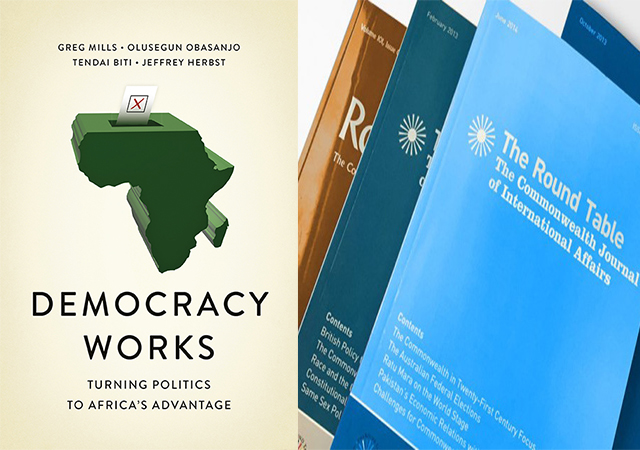
[This is an excerpt from a book review in The Round Table: The Cmmonwealth Journal of International Affairs.]
In this book, Greg Mills, Olusegun Obasanjo, Tendai Biti and Jeffrey Herbst argue that Africa’s future hinges on whether its states can make democracy work. This will, they claim, shape the ability of African governments to seize the opportunities created by rapidly growing populations increasingly characterized by a ‘youth bulge.’ Without the self-correcting mechanisms built into institutions, lower levels of corruption, and stronger judicial systems associated with democracy, the quality of governance in African states is likely to fall short of what is necessary to harness the continent’s economic potential.
The goal of Mills and his co-authors is twofold. First, to counter the pessimistic narratives that often dominate in discussions about the region. Second, to challenge the ‘authoritarian myth,’ the pervasive belief that Africans need to sacrifice their democratic freedoms for the sake of development. This entrenched, but ultimately mistaken, belief places too much weight on the economic successes of a small number of authoritarian regimes. In fact, the authors argue, democracies are better at delivering sustainable development on average and over the long term.
In support of this argument the book attempts to ‘debunk’ two African cases that have fuelled enthusiasm for more authoritarian approaches to development: Rwanda and Ethiopia. While the track-record of the former is impressive, the authors argue, its success depended on a unique set of circumstances that are impossible to replicate: a dense (and thus more easily governed) population, a relatively strong pre-colonial state, and a history of genocide that has been used to justify and legitimize authoritarian rule. Notably, the authors steer clear of the more controversial critique that has been made of the Rwandan example: that it is far less successful than its political leaders make out. In recent years, several academics have probed the government’s data and concluded that poverty rates in Rwanda may now be rising rather than falling.
Perhaps the most compelling argument that the book makes is that Africa’s own history of democratic transitions demonstrates that it is simply not necessary to sacrifice democracy in the pursuit of development. The experience of countries like Ghana and Botswana suggest that democracies can survive in Africa even when levels of development are low. That said, Mills and his co-authors admit that the most successful democracies in Africa are those that were ‘born free.’ For countries seeking to become free today, transitions to democracy are clearly more difficult and more costly, tending to occur as the result of political collapse rather than as the product of elite pacts.
The authors leave themselves open to some criticisms. Though they stress the unique – and non-replicable – nature of the Rwandan example, it could be argued that they also generalize from success stories that would be just as difficult to imitate. For example, they use the case of Mauritius to illustrate the ability of democracy to deliver sustained economic growth. Mauritius, they argue, ‘is often ignored today because it has been such a high performer for so long that its achievements seem preordained’ (p. 32). Arguably however, it is also ignored because – as a small island state – its economic successes have occurred in a political and geographic context that would be impossible for others to replicate.
Susan Dodsworth is currently a Research Fellow at the University of Birmingham’s International Development Department.
Democracy Works: Turning Politics to Africa’s Advantage by Greg Mills, Olusegun Obasanjo, Tendai Biti and Jeffrey Herbst, London, Hurst & Company, 2019.



